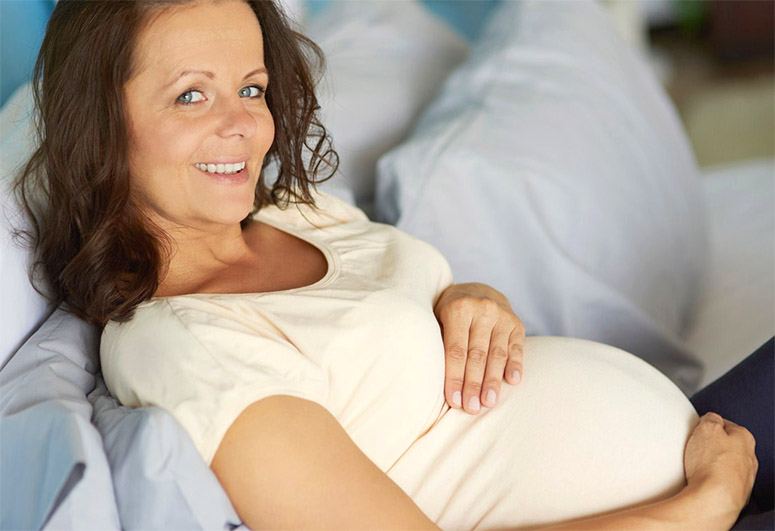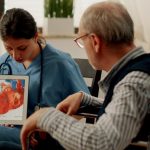Contents
As women age, the experience of motherhood can acquire new dimensions, leading many to contemplate the possibilities of pregnancy at the age of 50.
While the likelihood of conceiving naturally diminishes considerably, various factors can impact fertility during this stage of life. What are the odds of getting pregnant at 50?
This discussion aims to elucidate the realities of attempting to become pregnant at this age, including the physiological changes that occur, the associated risks, and the potential options available for those wishing to expand their families.
Whether considering natural conception, in vitro fertilization (IVF), or adoption, a comprehensive understanding of these elements can aid individuals in navigating this complex yet optimistic journey
What are the chances of getting pregnant at 50?
As women approach the age of 50, the likelihood of achieving natural pregnancy declines significantly due to a variety of factors that impact fertility.
This age represents a transitional phase often characterized by perimenopause and the eventual onset of menopause, both of which can substantially influence hormone levels and ovulation cycles.
While some women may still experience successful natural conception, it is advisable to explore assisted reproductive technology (ART) options, such as in vitro fertilization (IVF), particularly as the chances of pregnancy decrease with advancing reproductive age.
Understanding these statistics is essential for effective family planning and for evaluating pregnancy options during this stage of life.
Factors that affect fertility after 50
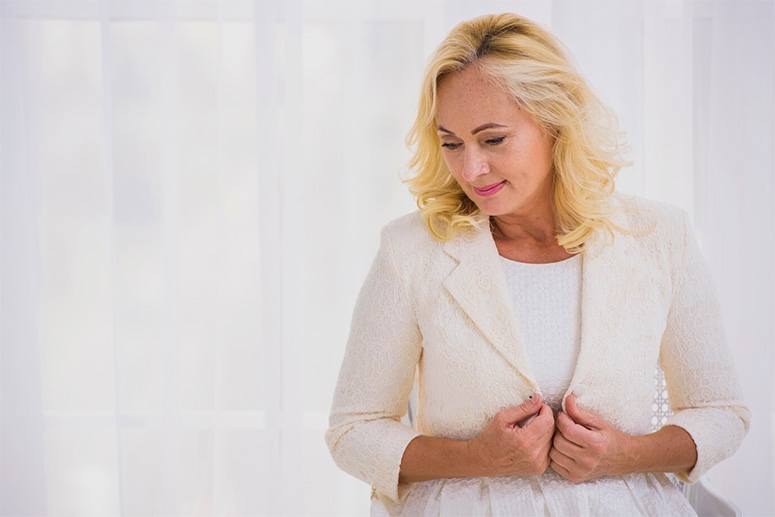
Several factors can significantly impact fertility after the age of 50, including the onset of menopause, fluctuating hormone levels, and various health and lifestyle considerations that are crucial to reproductive health.
As women transition through perimenopause and enter menopause, they typically experience a decline in ovarian reserve and egg quality, which can substantially diminish their chances of achieving a successful pregnancy.
Moreover, lifestyle factors such as nutrition, body weight, smoking, and alcohol consumption can further affect fertility and overall reproductive health. Therefore, it is essential to understand these variables during this stage of life.
1. Menopause
Menopause represents a significant milestone in a woman’s life, marking the conclusion of her reproductive years and resulting in considerable hormonal changes that directly affect fertility.
Typically occurring around the age of 50, menopause is characterized by the cessation of ovulation, which leads to a decline in levels of estrogen and progesterone – hormones essential for maintaining reproductive health.
This transition not only influences a woman’s ability to conceive naturally but also introduces various health risks that may complicate attempts at pregnancy.
During this phase, women may encounter several key stages, including perimenopause, which can commence several years prior to menopause itself.
This stage is characterized by irregular menstrual cycles and fluctuations in hormone levels. Symptoms such as hot flashes, night sweats, mood swings, and vaginal dryness may arise, all of which are directly associated with changing estrogen levels.
A comprehensive understanding of the hormonal dynamics during menopause enables women to adopt proactive measures for managing their health.
Recommended strategies may include lifestyle modifications such as:
- Engaging in regular exercise;
- Maintaining a balanced diet rich in phytoestrogens;
- Considering hormone replacement therapy to alleviate symptoms and support overall reproductive health.
By embracing this knowledge, women can navigate the challenges of menopause with increased ease and confidence.
2. Ovulation
Ovulation is a critical component of a woman’s reproductive health, and its frequency and quality can be significantly impacted as women approach the age of 50.
During perimenopause, it is common for women to experience irregular ovulatory cycles, leading to unpredictable fertility patterns.
Understanding the changes in ovulation during this transitional phase is essential for those considering pregnancy, as it directly influences the likelihood of conception.
As hormonal fluctuations become more pronounced, many women may observe changes such as shorter cycles or skipped periods, which can further complicate their efforts to conceive.
Consequently, tracking ovulation becomes imperative during this period. Methods such as basal body temperature monitoring, ovulation predictor kits, and fertility apps can offer valuable insights.
By recognizing patterns and variations in their cycles, women can gain a greater understanding of their reproductive health and make informed decisions regarding family planning.
The significance of these tracking methods extends beyond the mere understanding of ovulation – they also give the power to women with knowledge as they navigate the complexities of fertility during their 50s.
3. Hormone levels
Hormone levels are critical in a woman’s ability to conceive, especially as she approaches menopause and experiences significant fluctuations in estrogen and progesterone.
These hormonal changes can result in irregular menstrual cycles, which can impact ovulation and subsequently reduce fertility.
It is essential for women over 50 who are considering their pregnancy options to understand the relationship between hormone levels and reproductive health.
As estrogen and progesterone levels decline, the quality and frequency of ovulation may also decrease, making it increasingly challenging for women to predict their fertile windows.
This unpredictability not only diminishes the chances of conception but also contributes to an overall decline in reproductive health.
Lower estrogen levels can affect the thickness of the uterine lining, further complicating the implantation process for fertilized eggs.
Women who aim to conceive during this stage of life may find it beneficial to consult healthcare professionals to explore potential hormone therapy options and gain insights into their reproductive health.
Understanding how hormonal changes can influence fertility allows women to make informed decisions regarding their reproductive plans.
4. Health and lifestyle factors
Health and lifestyle factors play a critical role in influencing fertility, particularly for women over the age of 50, who may already experience age-related declines in reproductive health.
Aspects such as weight, smoking, alcohol consumption, and nutrition significantly impact fertility levels and overall health. Therefore, lifestyle modifications are essential for individuals seeking to improve their chances of conception.
Understanding the interplay between these factors and reproductive health give the power tos women to make informed decisions regarding their family planning.
To enhance fertility, women should prioritize maintaining a healthy weight through balanced nutrition and regular exercise, both of which are crucial for hormonal regulation.
Eliminating smoking and reducing alcohol intake can lead to substantial improvements in reproductive health. Additionally, incorporating more whole foods – such as fruits, vegetables, and whole grains – alongside healthy fats, while minimizing processed foods, supports reproductive function.
Furthermore, managing stress through mindfulness practices, such as yoga or meditation, can optimize fertility outcomes.
By implementing these actionable strategies, women can create a supportive environment for conception, enabling them to approach family planning with increased confidence and a healthier lifestyle.
What are the risks of getting pregnant at 50?
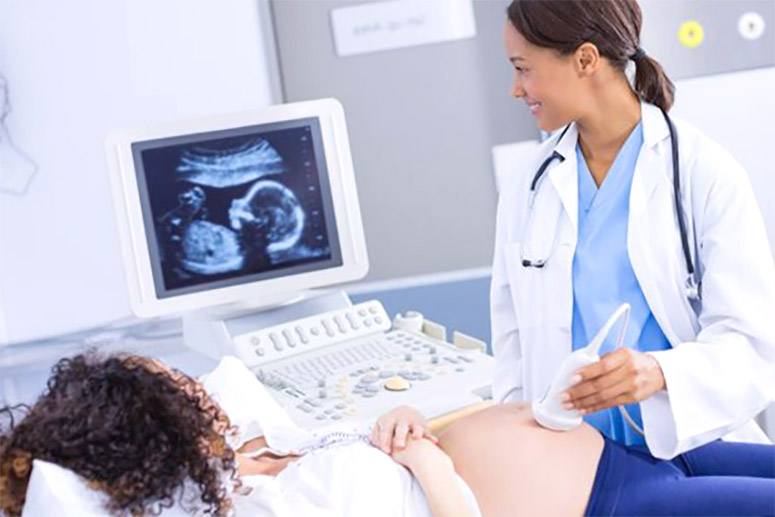
Becoming pregnant at the age of 50 presents several risks that are critical to acknowledge for informed family planning.
As maternal age increases, the likelihood of experiencing pregnancy complications, such as gestational diabetes, hypertension, and preterm birth, also escalates.
Furthermore, there is an increased probability of birth defects and chromosomal abnormalities, which underscores the importance of diligent prenatal care and screening for expectant mothers.
Recognizing these risks is essential for women contemplating pregnancy at an advanced age.
1. Increased risk of complications
Pregnancy at the age of 50 significantly elevates the risk of complications that may impact both maternal health and fetal development.
Conditions such as gestational diabetes and preeclampsia are more common in older pregnant women, necessitating careful monitoring and management throughout the pregnancy.
It is imperative for women contemplating pregnancy at this age to be cognizant of these risks and to engage in proactive prenatal care and health screenings.
Advanced maternal age is associated with increased rates of chromosomal abnormalities and may complicate labor and delivery, thereby emphasizing the necessity of comprehensive prenatal evaluations.
Regular consultations with healthcare providers allow for the early identification of potential issues, facilitating timely interventions.
Fertility treatments frequently accompany pregnancies in this age group, potentially introducing additional variables that may affect both maternal well-being and neonatal outcomes.
Ultimately, remaining informed and adhering to recommended health screenings are critical steps in managing a healthy pregnancy journey for women within this age demographic.
2. Higher chance of birth defects
The likelihood of birth defects and chromosomal abnormalities increases significantly for women who become pregnant at the age of 50, necessitating critical considerations for family planning.
As ovarian function declines with advancing age, the quality of eggs may deteriorate, resulting in heightened risks for conditions such as Down syndrome and other genetic disorders.
It is essential for prospective parents to understand these risks in order to make informed decisions regarding prenatal testing and care.
Statistics indicate that the probability of chromosomal abnormalities can escalate to 1 in 30 births for women over the age of 45, underscoring the importance of proactive measures.
Genetic testing options, including non-invasive prenatal testing (NIPT), provide valuable insights into potential issues during early pregnancy.
Parents contemplating pregnancy later in life are strongly encouraged to engage in comprehensive prenatal care, which includes regular check-ups and discussions about lifestyle choices that may affect fetal health.
By considering these important factors, individuals can enhance their understanding and preparedness for the complexities of parenthood, ensuring that they are well-equipped to navigate the challenges that lie ahead.
3. Greater risk of pregnancy complications
Pregnancy complications are more prevalent in women over the age of 50, with a range of medical issues potentially arising during gestation.
Conditions such as hypertension, preterm labor, and placental abruption are observed more frequently among older mothers, underscoring the importance of continuous prenatal care and monitoring.
Awareness of these risks enables women to seek appropriate medical guidance and adopt a proactive approach to their health during pregnancy.
Having a comprehensive understanding of these complications is essential for ensuring a healthier pregnancy experience. The challenges encountered by older expectant mothers can be diverse, including heightened risks of gestational diabetes and genetic disorders.
Regular check-ups and customized prenatal care can significantly mitigate these risks.
Healthcare providers play a crucial role in offering valuable insights into lifestyle modifications and nutritional support that address the specific needs of women in this age group.
By maintaining a proactive and vigilant stance, mothers can substantially enhance their chances of experiencing a safe and successful pregnancy journey.
Options for getting pregnant at 50
Women approaching the age of 50 have various options for achieving pregnancy, including natural conception and assisted reproductive technologies that can significantly improve their chances of a successful outcome.
Although natural conception may still be a viable option for some individuals, many women may opt for methods such as in vitro fertilization (IVF), egg donation, or surrogate motherhood to address the challenges associated with age-related fertility decline.
Familiarity with these alternatives is essential for making informed decisions regarding family planning.
1. Natural conception
Natural conception at the age of 50 is possible, although the likelihood is significantly diminished. It is essential for individuals to possess a comprehensive understanding of their fertility status.
Women considering this option should monitor their ovulation cycles and hormone levels, as these factors will directly influence their chances of conception.
While some may still achieve pregnancy naturally, it is crucial to remain cognizant of the associated risks and health considerations.
To improve the likelihood of conception, it is advisable for women to investigate methods for tracking ovulation, such as utilizing basal body temperature monitoring or ovulation predictor kits.
These tools can offer valuable insights into their most fertile days.
Hormonal health is a vital component – understanding the fluctuations in estrogen and progesterone levels can provide clarity regarding the reproductive window.
Additionally, factors such as overall health, lifestyle choices, and underlying medical conditions can significantly impact fertility awareness.
Consequently, seeking guidance from healthcare professionals is recommended to develop a strategic approach to natural conception, ensuring a thorough understanding of the biological and physiological elements involved.
2. In vitro fertilization (IVF)
In vitro fertilization (IVF) is a prominent option for women over the age of 50 who wish to conceive, as it effectively circumvents some of the natural limitations associated with age-related fertility decline.
This assisted reproductive technology enables the selection of high-quality eggs and embryos, thereby offering women an opportunity to achieve pregnancy despite a diminished ovarian reserve.
A comprehensive understanding of the IVF process and its potential outcomes equips women to make informed decisions regarding their reproductive choices.
The IVF process typically commences with ovarian stimulation, during which hormone injections are administered to promote the ovaries’ production of multiple eggs.
Subsequently, the eggs are retrieved through a minor surgical procedure. The retrieved eggs are then fertilized in a laboratory setting with sperm, resulting in the formation of embryos, which are closely monitored for quality.
After several days, one or more embryos are transferred back into the uterus with the objective of facilitating implantation.
Women over 50 may encounter distinct challenges, such as an increased likelihood of genetic abnormalities in embryos – however, preimplantation genetic testing can assist in selecting the healthiest options.
Success rates for IVF can fluctuate significantly, influenced by factors such as age and overall health. Nevertheless, many clinics report encouraging outcomes for older women utilizing donor eggs.
This approach can offer renewed hope for those facing fertility challenges later in life.
3. Egg donation
Egg donation represents a viable option for women over the age of 50 who wish to experience pregnancy, as it involves the use of donor eggs from younger women to enhance the likelihood of successful conception.
This approach significantly improves the chances of achieving pregnancy by addressing the age-related decline in both egg quality and quantity. Understanding the egg donation process and its implications is crucial for women considering this reproductive option.
The process commences with the selection of an appropriate egg donor, which typically includes comprehensive medical screenings and psychological evaluations to ensure compatibility and overall health.
Women interested in this pathway should also take into account various eligibility factors, such as their health status and the potential risks associated with the procedure.
Additionally, the emotional dimensions of this process are significant – individuals may encounter feelings of loss or challenges related to identity while navigating their journey towards motherhood.
Despite these challenges, the use of donor eggs offers numerous advantages, including an increased likelihood of a healthy pregnancy and the opportunity to establish a biological connection with the child.As such, it remains a compelling choice for many women.
4. Adoption
Adoption presents a fulfilling alternative for women over the age of 50 who aspire to become mothers while mitigating the health risks and complications often associated with pregnancy at an advanced maternal age.
This option enables individuals or couples to provide a nurturing home for a child without facing the physical challenges inherent in pregnancy.
Considering adoption as part of family planning give the power tos women to make informed decisions regarding their maternal journey.
The adoption process encompasses various emotional and practical considerations, including the desire to nurture a child and the complexities of navigating legal frameworks.
For many, it represents a distinctive opportunity to connect with a child in need of a family, allowing them to experience the joys of motherhood without the potential complications associated with conceiving later in life.
Moreover, adoption can enhance family dynamics, introducing new strengths and experiences to the family unit.
Women over 50 may discover that pursuing this path not only fulfills their parenting aspirations but also enriches their lives in a profound and meaningful manner.
Tips for increasing fertility after 50
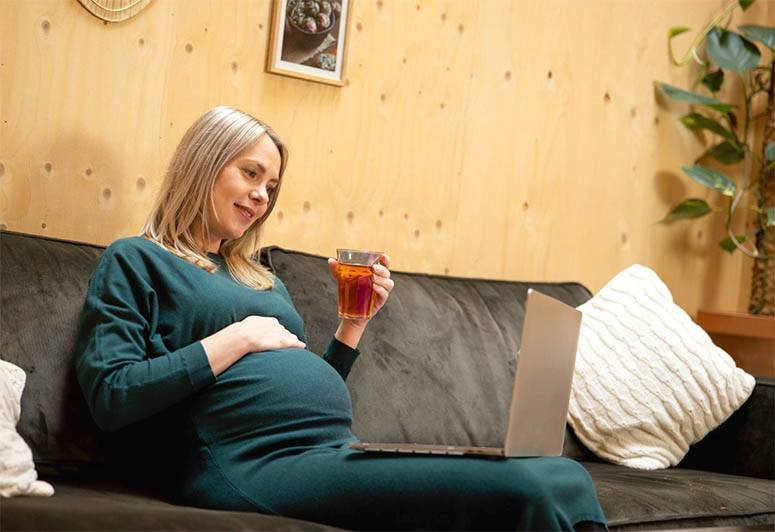
Enhancing fertility after the age of 50 can present significant challenges – however, the adoption of a healthy lifestyle, coupled with appropriate medical guidance, can improve a woman’s reproductive health.
Key factors such as nutrition, weight management, and the avoidance of smoking or excessive alcohol consumption are crucial in enhancing fertility.
Furthermore, exploring alternative fertility treatments and seeking consultation with a fertility specialist may further augment the likelihood of successful conception at this age.
1. Maintain a healthy lifestyle
Maintaining a healthy lifestyle is essential for women over 50 who wish to enhance their fertility and overall reproductive health.
Key elements of this lifestyle include adhering to a balanced diet rich in essential nutrients, engaging in regular exercise, and effectively managing weight, while also avoiding smoking and minimizing alcohol consumption.
These factors can significantly influence hormone levels and egg quality, thereby improving the likelihood of conception.
Incorporating specific foods high in antioxidants, such as berries, leafy greens, and nuts, is beneficial in combating oxidative stress, which is known to adversely affect reproductive health.
Women should prioritize the consumption of healthy fats, such as those found in avocados and fish, as these contribute to hormonal balance and enhance overall fertility potential.
Engaging in regular physical activity not only aids in maintaining a healthy weight but also promotes optimal blood circulation, thereby supporting a more efficient reproductive system.
Additionally, prioritizing adequate sleep and managing stress through mindfulness practices can provide crucial support for both physical and mental well-being, ultimately enhancing fertility outcomes.
2. Consider alternative fertility treatments
Considering alternative fertility treatments can be essential for women over 50 who are seeking to conceive, particularly when traditional methods may not yield the desired results.
Options such as assisted reproductive technology (ART), including in vitro fertilization (IVF), can assist women in navigating the challenges associated with age-related fertility decline and enhance their chances of achieving pregnancy.
Plus IVF, other treatments like intrauterine insemination (IUI) and hormone therapy may also offer viable paths to motherhood.
Each approach presents its own set of advantages, such as lower costs or less complex procedures – however, their effectiveness may be influenced by the biological factors involved.
Consulting with reproductive health specialists is imperative, as they provide personalized insights and comprehensive assessments tailored to individual circumstances.
These experts can navigate patients through the complexities of their options, evaluating the potential for success against any associated risks, ultimately give the power toing women to make informed decisions regarding their fertility journey.
3. Consult with a fertility specialist
Consultation with a fertility specialist is a critical step for women over the age of 50 who wish to explore their reproductive options and assess their fertility status.
A specialist can offer invaluable medical advice, evaluate ovarian reserve, and recommend appropriate fertility treatments tailored to individual health conditions and medical history.
Engaging with a fertility expert enables women to make informed decisions regarding their family planning.
Plus a comprehensive assessment of ovarian reserve, a fertility specialist will conduct various evaluations customized to each woman’s specific circumstances.
These assessments may include hormone testing, ultrasounds, and a thorough review of any underlying medical conditions that may impact reproductive health.
By undertaking these measures, women are provided with a clearer understanding of their options and the likelihood of conception.
It is essential to prioritize personalized medical guidance, as this not only enhances the comprehension of one’s fertility but also facilitates more targeted interventions that can lead to successful outcomes.
Check out our FAQ further down the page to learn about the likelihood of pregnancy at age 50.
Dive into the fascinating realm of probabilities and remarkable events. Satisfy your curiosity and enhance your understanding by exploring our articles at WhatAreTheOddsOf.NET.

